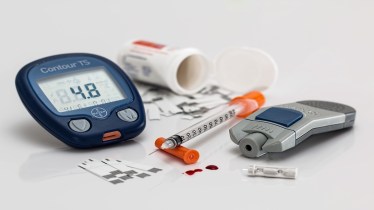Diabetes, often known as a silent killer, continues to be a major public health challenge in India. According to a recent study by the Madras Diabetes Research Foundation and the Indian Council of Medical Research (ICMR), India has around 101 million people living with diabetes and another 136 million people in pre-diabetes stages.
Diabetes is a chronic disease that occurs either when the pancreas does not produce enough insulin or when the body cannot effectively use the insulin it produces. Over time, diabetes can damage blood vessels in the heart, eyes, kidneys, and nerves.
According to the World Health Organization (WHO), People with diabetes have a higher risk of health problems including heart attack, stroke and kidney failure. The disease can also lead to permanent vision loss by damaging blood vessels in the eyes.
70 percent of people with diabetes want to make lifestyle modifications
A recent survey by Practo reveals that 70 percent of people with diabetes (diabetic and pre-diabetic patients) want to make changes in lifestyle and diet for a better quality of life.
The survey was conducted to understand patients’ attitudes and preferences in managing diabetes and the current scenario of diabetes management in India, Practo said in a press statement.
The data collected from close to 200 diabetic and pre-diabetic patients showed that nearly 40 percent of them do not regularly consult their doctors for diabetes. And what’s interesting is that more men with diabetes consulted doctors compared to women with diabetes.
“Another noteworthy finding is that when confronted with their diagnosis, 46% of patients confessed to being concerned about lifelong dependence on medications, and 49% expressed concern about the future risk of medical complications. Despite this, almost half of the patients admitted to not being physically active, and almost two-thirds of patients had never consulted with a nutritionist or dietitian. This is despite equal enthusiasm from both men and women to adopt improved dietary habits to manage their diabetes,” it stated.
the survey also highlighted that there is an absence of a structured program that promotes overall wellness, which affects behavioural change and implementation, and positively impacts motivation.
Is diabetes remission possible?
There is now emerging evidence worldwide that a holistic approach to diabetes can prevent and even put diabetes into remission. A breakthrough research trial called the DiRECT trial from the United Kingdom changed the landscape of diabetes management.
According to the study, type 2 diabetes which was often deemed permanent and progressive can be placed in remission through lifestyle intervention. By sustained positive healthy diet changes, physical activity and resultant weight loss, patients can achieve diabetes remission i.e. bringing blood sugars back into the normal range without the aid of medications, experts claim.
To bridge this gap in diabetes care delivery, Practo designed and implemented Transform, a digital diabetes management program that aims to help patients put their diabetes into remission with habit and lifestyle changes.
“Through its structured program, multidisciplinary team (MDT) approach and proprietary technology it creates personalised plans and drives behaviour change that enables patients to put their diabetes into remission and live medicine free lives. So far, Transform has successfully helped hundreds of patients with Type 2 diabetes and pre-diabetes and improved diabetes control with less or no medication,” Dr. Hema Venkataraman, consultant Endocrinologist, NHS, UK and Medical Advisor, Practo Transform, said during a press briefing.
What is the status of diabetes remission in India?
Dr. Venkatraman revealed that the lifetime risk of diabetes in Indian adults over 20 years of age is estimated to be well over 50 percent and this risk is much higher with advancing age and obesity.
“Given the rising burden of Diabetes and pre-diabetes in India, there is an urgent need for the nationwide rollout of 2 key programs, to “blunt the curve” of the rising diabetes epidemic. First, A national diabetes prevention program (DPP) aiming at those at high risk of progression to diabetes eg pre-diabetes, obesity and gestational diabetes,” She informed.
She also emphasised on the need to have a national diabetes remission program (DRP) aiming at people with recent onset diabetes, to reduce the morbidity of diabetes and its related complications.
“When countries with a much smaller diabetes burden like the United Kingdom have modeled, piloted, and pioneered both the national DPP and DRP successfully, it is now time to ‘Make in India’,” she added.
On the status of diabetic patients in remission in India, Dr. Venkataraman told Financial Express.com: “Diabetes remission in India is largely delivered and run by private players. For example, Practo. There are other private healthcare companies that have taken over remission. Surprisingly, The organized healthcare sector, like hospitals, the larger hospital chains have been very slow in picking up diabetes remission as a goal/programme. So, it’s been very slow. So, I think it’s largely done by private health players, digital private health companies who do diabetes remission as a business. Larger players like apollo are starting to think of launching something. We have other players like Manipal etc. Overall, we’re doing a very small-scale diabetes remission but largely by the private players only.”
She also revealed that the government-run remission programmes are non-existent in India currently.
“There is a plan brewing to see whether there should be a cheap, affordable diabetes remission for all programmes by the central government, but we don’t have any programmes as of now. So, there is a plan but currently it is fragmented and private and probably it will not be enough to meet the needs of diabetes remission distribution across the country,” she added.
